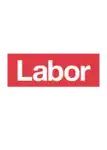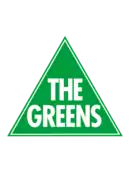| |||||||||||||||||||||||||||||||||||||||||||||||||||||||||||||||||||||||||||||||||||||||||||||||||||||||||||||||||
| Registered | 1,716,732 | ||||||||||||||||||||||||||||||||||||||||||||||||||||||||||||||||||||||||||||||||||||||||||||||||||||||||||||||||
|---|---|---|---|---|---|---|---|---|---|---|---|---|---|---|---|---|---|---|---|---|---|---|---|---|---|---|---|---|---|---|---|---|---|---|---|---|---|---|---|---|---|---|---|---|---|---|---|---|---|---|---|---|---|---|---|---|---|---|---|---|---|---|---|---|---|---|---|---|---|---|---|---|---|---|---|---|---|---|---|---|---|---|---|---|---|---|---|---|---|---|---|---|---|---|---|---|---|---|---|---|---|---|---|---|---|---|---|---|---|---|---|---|---|
| Turnout | 28.85% | ||||||||||||||||||||||||||||||||||||||||||||||||||||||||||||||||||||||||||||||||||||||||||||||||||||||||||||||||
| |||||||||||||||||||||||||||||||||||||||||||||||||||||||||||||||||||||||||||||||||||||||||||||||||||||||||||||||||
The 2023 Western Australian local elections were held on 21 October 2023 to elect the councils of 124 of the 137 local government areas (LGAs) in Western Australia. Many councils also held mayoral and deputy mayoral elections.[1] Local elections in WA are held periodically, meaning around half of all councillors were not up for election until 2025.[2]
Electoral reform saw optional preferential voting introduced, and council representation changed to align with the population of the district.[1][3]
Electoral system
Significant electoral reform was introduced into the state parliament by the McGowan government in February 2023. It saw optional preferential voting (used for local and state elections in New South Wales) introduced, replacing first-past-the-post.[1] Up until 2021 in multi-member wards, a voter would get to vote for as many candidates as there are vacancies (known as plurality voting).[2]
Council representation was also changed to align with the population of the district, with council wards abolished for smaller councils. For all larger councils, the mayor or president will now be popularly elected, rather than appointed by councillors.[1]
Almost all local elections were conducted via post. Eight councils held in-person elections:
Political parties
Local elections in WA are officially non-partisan, and the vast majority of candidates and councillors are independents.[4] The Labor Party confirmed at least 43 of its members were running for council, while the Greens endorsed two candidates.[5]
Members of the Animal Justice Party, Australian Christians, Legalise Cannabis Party, Liberal Party, No Mandatory Vaccination Party and Western Australia Party also all contested the elections.[4]
Party changes before elections
A number of councillors joined or left parties before the 2023 elections.
| Council | Ward | Councillor | Former party | New party | Date | ||
|---|---|---|---|---|---|---|---|
| Rockingham | Deputy Mayor | Hayley Edwards | Labor | Independent | April 2023 | ||
Campaign
The election campaigns in a number of LGAs saw controversies. In Busselton, candidate Stephen Wells was reported to have made racist and anti-semitic comments.[6] In Swan, candidate Mani Singh had his election corflutes stolen and vandilised by a "rougue individual".[7]
Results
Council votes
| Party | Votes | % | Swing | Seats | Change | |
|---|---|---|---|---|---|---|
| Independents | 431,088 | 87.01 | 478 | |||
| Labor | 40,006 | 8.08 | 14 | |||
| Liberal | 12,852 | 2.59 | 6 | |||
| Legalise Cannabis | 3,638 | 0.73 | 1 | |||
| Animal Justice | 2,474 | 0.50 | +0.50 | 1 | ||
| Christians | 1,777 | 0.36 | +0.36 | 1 | ||
| Independent Greens | 1,257 | 0.25 | 0 | |||
| No Mandatory Vaccination | 1,037 | 0.21 | +0.21 | 0 | ||
| Greens | 986 | 0.20 | +0.20 | 1 | ||
| Western Australia | 325 | 0.07 | 0 | |||
| Total votes | 495,440 | 100.0 | ||||
| Registered votes / turnout | 1,716,732 | 28.85 | ||||
Aftermath
The Australian Christians had their first ever electoral victory, with WA branch president Mike Crichton elected in Rockingham.[4] The Animal Justice Party had their first electoral victory in WA, with state party committee member Amanda Dorn elected in Swan.[8]
There were 47 instances of an uncontested race, while 17 vacancies were left unfilled.[4]
Notes
- ↑ The Western Australian Labor Party is led by Roger Cook; however, he does not have involvement at a local government level.
- ↑ The Western Australian Liberal Party is led by Libby Mettam; however, she does not have involvement at a local government level.
- ↑ This does not include seats that were won in 2021 but not up for re-election until the 2025 elections.
References
- 1 2 3 4 "2023 local government elections". Western Australian Electoral Commission.
- 1 2 "Western Australia's first step on local council voting reform". The Tally Room.
- ↑ "WA rolls out local government electoral reforms ahead of October elections". The Mandarin.
- 1 2 3 4 "We looked at the elections in over 120 Western Australian councils - here's what we found". 6 News Australia.
- ↑ "Why local government candidates should be required to disclose party allegiance". 6PR.
- ↑ "Busselton council candidate Stephen Wells stands by racist, anti-Semitic commentary". ABC News.
- ↑ "'Disgusting behaviour': Campaigns get dirty as Perth's local government candidates go to war". WA Today.
- ↑ "2023 Ordinary Election - Swan". Western Australian Electoral Commission.



